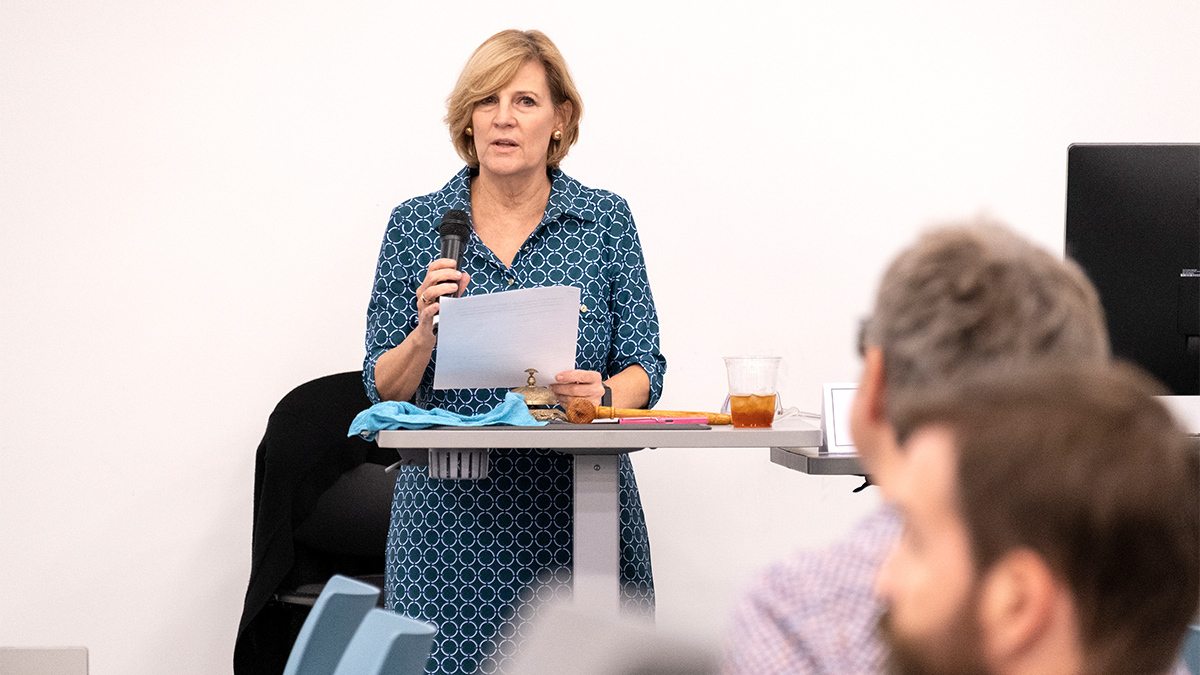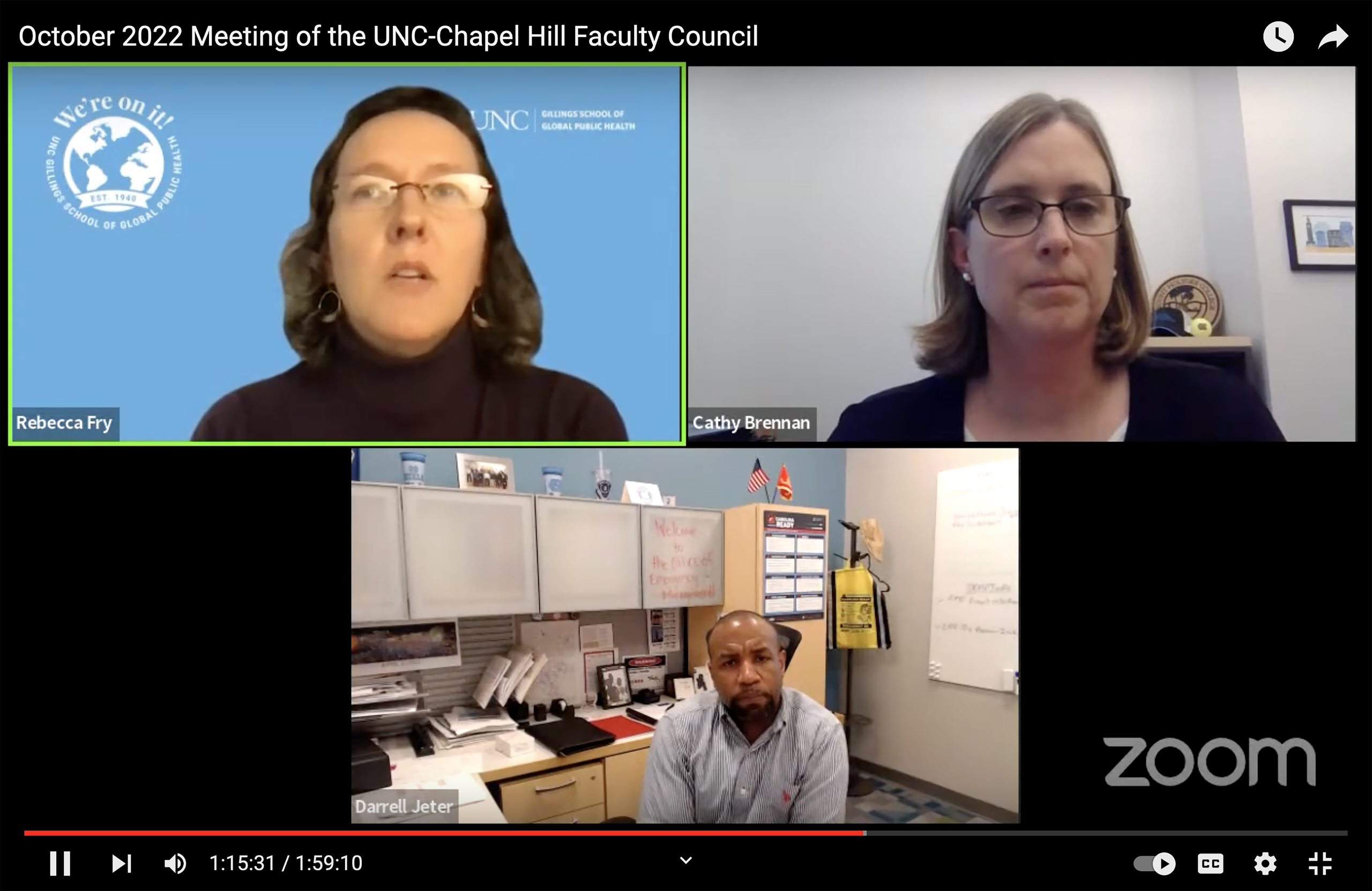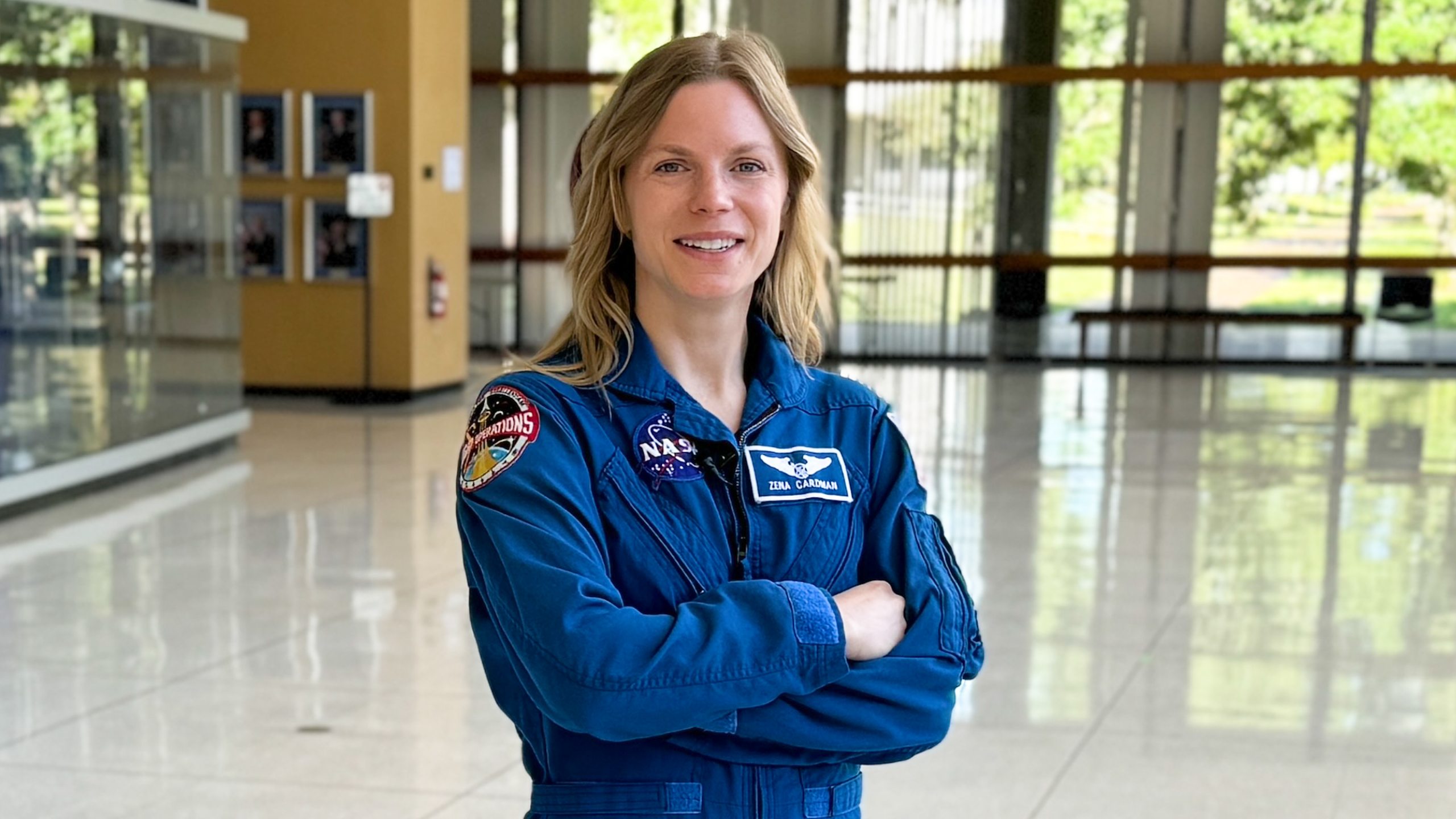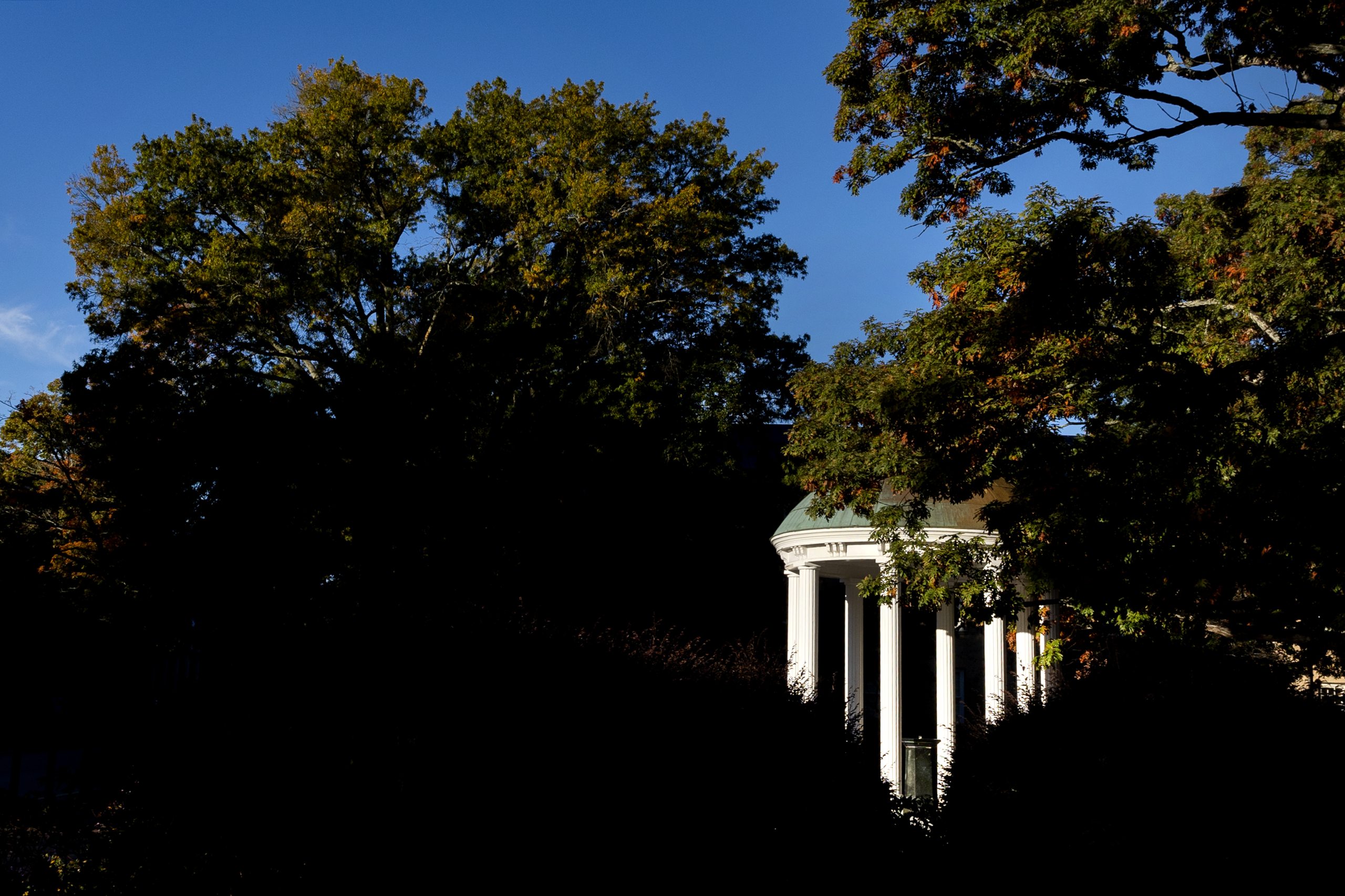Lead testing progress reported to faculty
Staff and faculty experts working on the problem with campus water fixtures updated Faculty Council at its October meeting.

A team of health and safety experts presented Faculty Council with the latest information on its three-stage approach to reports of lead in campus water fixtures at the Oct. 7 meeting. Since lead was first detected in water fountains in Wilson Library during a summer science project, Environment, Health and Safety has started a phased testing process that begins with fixtures with the highest likelihood of containing lead first, said EHS Executive Director Cathy Brennan.
The problem stems not from the water supply but from corrosion in plumbing components or solders in fixtures that allow lead to leach into the water. Industrial hygiene staff and student volunteers have completed the first phase of the project, testing those fixtures most likely to contain lead based on their age and construction. The team is now in phase two, testing water fixtures in buildings built in 1930 or before. In phase three, they will test fixtures in buildings built between 1931 and 1990. EHS posts updates on testing, including results by building, on the EHS website on campus drinking water and on the @unc_ehs Twitter channel.
EHS removes the water fixtures from service during testing and adds a warning sign on them. It removes the source if any detectable levels of lead are found, regardless of the level. “There is no safe level of lead,” said Rebecca Fry, director of the Institute for Environmental Health Solutions and the Gillings School of Global Public Health faculty expert advising on the mitigation process.
The University is providing alternate water sources in buildings where water fountains are being removed and is making blood tests available for all faculty, staff and students who work, study or live in the affected buildings. For information on how to get blood testing, visit the EHS website.

Professor Rebecca Fry, Environmental, Health and Safety Executive Director Cathy Brennan and Emergency Management and Planning Director Darrell Jeter discuss what is being done about lead in campus water fixtures. (Jon Gardiner/UNC-Chapel Hill)
Changes in Faculty Code
The agenda item that sparked the most conversation at the hybrid meeting, both in person in Carroll Hall and from participants online, was proposed changes to the terms of faculty chair and secretary.
Joy Renner, chair of the Committee on University Government, presented the committee report, highlighting changes designed to improve continuity in leadership and to encourage more faculty members to run for office:
- Chair would serve two years instead of three, with a one-year term as chair-elect and member of Faculty Executive Committee.
- Immediate past chair would become a member of the Advisory Committee.
- Secretary would serve four years instead of five, with a two-term limit.
“This seems to make really good sense — a buildup into the job and then a descent as past chair where you’re helping out and then just two years with the heavier workload as chair,” said Andy Hessick, a committee member and a professor and associate dean for strategy at the School of Law.
Some faculty members expressed concerns about equity and how salaries and course loads are adjusted for elected officers, an issue not addressed in the Faculty Code but negotiated between the officer’s dean and the provost. The discussion ran so long that a scheduled vote on the changes was postponed to the Nov. 4 meeting.
The changes would not affect the next election of Faculty Council chair in spring 2023. In her remarks, Chair Mimi Chapman encouraged faculty members to run for office. Nominations must be submitted by Oct. 17. “Faculty governance is only as strong as those who participate in it,” she said. “Don’t let the opportunity pass you by.”
Topical remarks
In his remarks to the faculty, Chancellor Kevin M. Guskiewicz announced the winners of the 2022 Phillip and Ruth Hettleman Prizes for Artistic and Scholarly Achievement:
- Seth A. Berkowitz, assistant professor in the School of Medicine’s department of medicine.
- Danielle Christmas, associate professor within the College of Arts and Sciences’ English and comparative literature department.
- Frank Leibfarth, assistant professor in the College’s chemistry department.
- Yuliya Pylayeva-Gupta, associate professor in the School of Medicine’s genetics department.
Guskiewicz also had an update on the Carolina Women’s Center, without a director since Gloria Thomas left to become president of Higher Education Resource Services. When a national search for a replacement failed, “we decided to take a step back and reimagine what a new women’s center might look like,” he said. As part of this process, Beth Posner, clinical associate professor at the School of Law, will be meeting with groups on campus to get their input.
After his first three months on the job, UNC Police Chief Brian James introduced himself to faculty. He spoke about how his officers are building community through activities like handing out snow cones and dressing up like zombies at the recent Tar Heel Zombie Preparedness Festival.
“You cannot build relationships in the middle of a crisis,” said the 26-year veteran of the Greensboro Police Department. “We are a part of the campus community. We are not an occupying force.”
Updates from Provost and Chief Academic Officer J. Christopher Clemens included the announcement of the first meeting of his office’s salary equity committee, a response to a Faculty Council report in March on salary inequities impacting women, Black, Latinx and American Indian faculty. The salary equity team is led by Lynn Williford, assistant provost for institutional research and assessment.
“We want to make sure the infrastructure is there for this to be a sustainable effort and not a one-time approach,” Clemens said. “I will provide updates to this council as we make progress on this initiative because it’s a crucial part of faculty recruitment, a crucial part of retention, but more importantly, it’s a demonstration of our values of equity, justice and solidarity.”
Clemens also reported that the CONCUR software program for travel booking and reimbursement is being updated to give users more flexibility. “You were heard,” he told faculty members.
Jan Hannig, chair of Carolina’s delegation to the UNC System Faculty Assembly, concluded the meeting with a report on the top concerns of faculty from all 16 universities. These include faculty welfare, the new UNC System budgeting model and declining enrollments.
“The big one for the system is declining enrollments. We and NC State don’t have the problem. Everybody else does,” Hannig said. “And people are very worried about it because the demographic changes in North Carolina seem like there will be fewer and fewer potential students.”
Watch the recording of the Oct. 7 Faculty Council meeting online.




